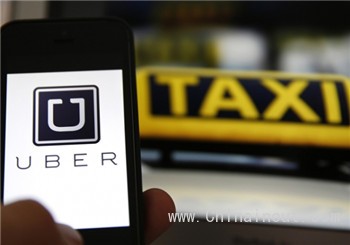在一些國家中,“千禧一代”幾乎認(rèn)為“共享經(jīng)濟(jì)”是一種理所當(dāng)然的存在,。
打開一個應(yīng)用,,點(diǎn)擊幾下按鈕,幾分鐘后就會有一輛出租車停在家門口,,一切就是這么簡單,。再或者,敲幾下鍵盤,,就可以找到一個最棒的沙發(fā),,舒舒服服地躺上幾天。而且,,付款簡單,,超級省時(shí)。
除了普通的智能手機(jī)消費(fèi)者,,這種新興經(jīng)濟(jì)模式同樣可以給其他人群帶來好處,。紐約大學(xué)在今年早些時(shí)候發(fā)布了一篇論文,該論文通過研究發(fā)現(xiàn),,在這種新興經(jīng)濟(jì)模式下,,受益最大的是低收入群體。
“我們強(qiáng)調(diào)這一研究結(jié)果,,是因?yàn)樗茏C實(shí)分享經(jīng)濟(jì)最終能給我們的生活帶來什么好處,,這種經(jīng)濟(jì)模式作為一種手段,使普通大眾也可以享受到較高的生活水平,。”研究者通過分析一個汽車租賃軟件的數(shù)據(jù),,在論文中寫道,。
一提起分享經(jīng)濟(jì),兩大品牌的名字便會在人們腦海中浮現(xiàn):拼車公司Uber以及租房公司Airbnb,。后者讓人們把自己家里的房間出租出去,,作為替代酒店和汽車旅館的一種選擇。那些低收入者能夠從分享經(jīng)濟(jì)中獲利的方式就是出租物品,。
“低收入者也是通過在這些平臺上出租物品而獲利最多的人,,”,艾米麗拜哲在《華盛頓郵報(bào)》上寫道,。“在共享經(jīng)濟(jì)的平臺上,,能夠利用貴重的物品賺取額外收入,而這一過程正好又降低了這些物品的價(jià)格,。”
拜哲指出,,比如,與律師相比,,一位服務(wù)員通過出租車輛賺取的20美元(約合124元人民幣),,可以大大提升她的收入。
話雖如此,,在現(xiàn)實(shí)生活中,還沒有有力的證據(jù)能夠證明,,大量的低收入者確實(shí)可以利用這些服務(wù)獲利,。
“部分障礙源于基本的服務(wù)保障;你必須有張信用卡和一個可以登錄現(xiàn)今這些共享經(jīng)濟(jì)平臺的智能手機(jī),,”拜哲寫道,。“但是,還有一部分原因可能是文化的障礙,。”
對于個人來說,,共享經(jīng)濟(jì)正在幫助消費(fèi)者節(jié)省——甚至創(chuàng)造——金錢和時(shí)間,對于那些低收入者也許幫助最大,。然而,,根據(jù)相關(guān)研究和數(shù)據(jù)發(fā)現(xiàn),這種新模式才剛開始出現(xiàn),,還沒有完全流行起來,。(中國進(jìn)出口網(wǎng))

In some countries, Millennials almost take the “sharing economy” for granted.
It’s easy to pull up an app, push a few buttons, and have a taxi at your doorstep withinminutes, or press a few laptop keys and find the best couch to crash on for a few days. It’seasy on the wallet and takes little time.
However, this new economic model could serve to benefit more than the average smartphone-wielding consumer. A paper released earlier this year by New York University found that thosewith the most to gain are the low-income participants in this new economy.
“We highlight this finding because it speaks to what may eventually be the true promise ofthe sharing economy as a force that democratizes access to a higher standard of living,” theresearchers wrote in the paper, which analyzed data from a car rental app.
Two big names come to mind when thinking of the sharing economy: ridesharing company Uberand lodging rental company Airbnb. The latter allows people to rent out their homes as analternative to hotels and motels. Renting out items is a way in which those with lower incomecan benefit from the sharing economy.
“Lower-income consumers also stand to gain the most from renting out their goods on theseplatforms,” Emily Badger wrote in The Washington Post. “The ability to make extra income offexpensive items makes those items less expensive.”
For example, Badger notes, an extra $20 (about 124 yuan) here or there for a waitress rentingout her car could serve to really boost a waitress’ income more than a lawyer’s.
That said, in the real world, there’s yet to be strong evidence that large numbers of lower-income consumers are actually taking advantage of such services.
“Part of the barrier is logistical; you have to have a credit card and a smartphone to accessmany of these platforms today,” Badger writes. “But another piece may be cultural.”
For individuals, the sharing economy is helping to save – or even create – money and time forconsumers, and may even help those with less money the most. However, the new model is sonew that it, along with the research and data to go with it, hasn’t fully caught on.











